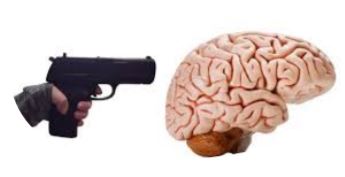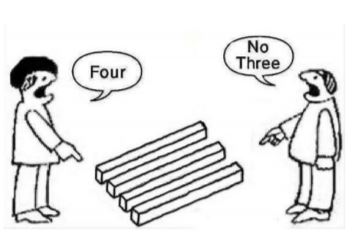AMYGDALA HIJACK
Have you ever waited for someone to respond to an important message and think the worst of the person if they didn’t respond in exactly the time you expected them to? Has your heart ever raced before you stepped on the stage to make a presentation? Has your heart ever skipped a beat when you saw your best friend and your worst enemy share a sneaky smile when you walked past them? Have you sensed changes like an increased heart rate, sweaty palms, shallow and rapid breathing, have you noticed a heat flush on your face, tightened neck and jaw? If yes, then you have suffered an amygdala hijack.


Conflict wreaks havoc on our brains. We are readied by evolution to protect ourselves whenever we sense a threat. In our modern context, we don’t fight like a wild buffalo with a tigress or run away like a rabbit from a fox. But our basic impulse to protect ourselves is automatic and unconscious. In Dr. Bessel Van Der Kolk’s book ‘The Body Keeps the Score’ the amygdala is called the brain’s “smoke detector.” It’s responsible for detecting fear and preparing our bodies for emergency response. When we perceive a threat, the amygdala sounds off the alarm, releasing chemicals in the body, preparing us for fight or flight
Imagine you get locked in one of the bathrooms of your house, (without your phone in hand) the door just slams shut behind you, you have a 5 years old child at home who is home with you. Would your initial response be 1. to try to turn or yank the door handle vigorously till it falls out or 2.cry or scream or 3. to stay calm and compose yourself, breathe and then let your thinking brain give you insight into the best alternative way out, like telling your child (who by now understands instructions) to turn the handle on the door from the other side and push hard since you hadn’t really locked the door) or tell your child to call your spouse / relative / neighbor etc

You probably would respond using points 1 and 2, and of course, you will eventually move on to point 3 and see more clearly within a few minutes. Now let’s use this example and imagine what happens in your brain.

The amygdala immediately shuts the door (bathroom) to the thinking brain (master bedroom, in other words, it shuts down the neural pathway to our prefrontal cortex) so we can become disoriented in a frantic stressful situation or a heated conversation. Complex decision-making disappears, as does our access to multiple solutions or perspectives.
As our attention narrows, we find ourselves trapped in the one or two solutions that makes us feel the safest: “I’m right and you’re wrong,” (like repeatedly yanking or turning the door handle till it falls off) even though we ordinarily see more solutions or perspectives and are more objective in a normal situation. When you finally calm down and start to feel more relaxed, the amygdala opens the door to the thinking brain (master bedroom) and lets the solutions flow. Do you want to know how to get out of the ‘stuck in the bathroom’ situation? This is where mindfulness helps



Recent Comments